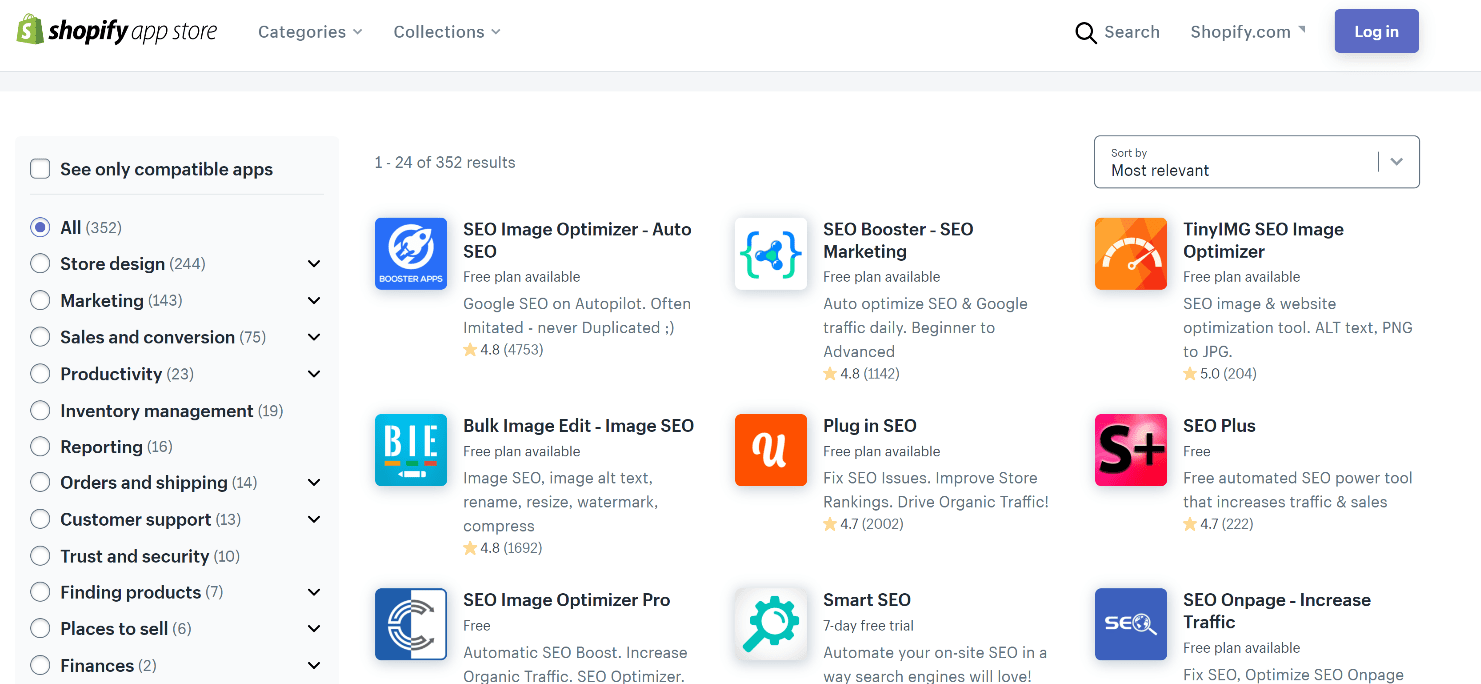Five preconceived (but false) ideas on Shopify
Are you familiar with the Shopify E-commerce solution? Not yet? Then check out my review of Shopify to find out all about this modern, reliable and I must say quite impressive solution.
A little aside before I start, I am the founder of Pikka.fr, a full service e-commerce agency 100% Shopify. My article is therefore obviously that of a supporter and fan of the Shopify solution but also that of a Shopify expert.
Indeed, every day I have to keep the promises I make to my customers by delivering beautiful, reliable and fast sites. So I have no interest in selling the Shopify solution if I can't deliver on those promises.
If you want to try Shopify, please feel free to clic on the image below to start your own e-commerce website in a few minutes

WHY PRECONCEIVED NOTIONS ABOUT SHOPIFY?
So first of all, why do an article to explain the preconceived notions about Shopify? Well, because there are many errors circulating in the French e-commerce community. Not only with the agencies, but also with others. And that this can lead to "fake news" which does not allow e-merchants to make the best decision when choosing their e-commerce platform.
This article therefore aims to inform "from the inside", via the advice of a Shopify expert, about the reality of a Shopify project.
If you have any questions about Shopify, you can book a telephone appointment with me directly via the contact form below.
Now it's time for a debunkage on the most common misconceptions about Shopify.
SHOPIFY N°1 : SHOPIFY IS FOR SMALL SHOPKEEPERS
This is certainly the N°1 idea of Shopify all around the world. Is Shopify only for small retailers? Not at all. So where does this confusion come from? I think it comes mainly from two points: the SaaS model and the simplicity with which you can open a Shopify shop.

KKW Beauty makes more than 100 millions every year with Shopify
Because yes, opening a Shopify shop is simple. Very simple. For example, as a Shopify partner, I can set up your back office in just a few minutes.
There are still a lot of things to be done to get your online shop really created but with time you could get there.
And it's also that even though Shopify is not free, the initial budget to take advantage of it can be very reasonable!
So Shopify has an ergonomic and pleasant back office. It's a change from Magento and Prestashop.
This simplicity and ergonomics may at first glance make you think that the solution is simplistic when it is not at all. It focuses on the merchant and not the agency.
It is true that out of the one million Shopify sites in activity (at the time this article is written) many Shopify sites are small sites. But on the other hand, Shopify also manages the sites of Bourjois, Kylie Cosmetics, Budweiser, The Economist (the e-commerce part), New York Times (the e-commerce part), Tesla (cars), Red Bull, kkwbeauty (Kim Kardashian). In short, very very big e-commerce sites that are all in Shopify plus.
Shopify Plus (between $2000 and $40,000 / month license) is based on the same platform as Shopify . It is less well known in France because for the moment the teams are English-speaking but the result is there: building large e-commerce sites on Shopify is quite conceivable.
SHOPIFY'S RECEIVED IDEAS N°2: NOTHING CAN BE CHANGED
Second misconception about Shopify. It's SaaS, software as a service, and you can't change anything. This misconception is especially true in France, where I work, where there is a very strong open source culture. But there is an inculture of SaaS. The people at Wizishop and Dropizi (another e-commerce solution) experimented with it at the beginning.
In short, SaaS is seen as a black box where everything is managed by the publisher. Nothing could be further from the truth with Shopify and its gigantic API.
An API is a programming interface for developing applications. In this case, Shopify's APIs are very complete, extremely reliable and very well documented.
Therefore, it is possible to change a lot of things on Shopify via the API :
- The front end
- the back end
- Imports/exports of products
- Functionalities
- Interfacing with a large number of service providers (logistics, payment, warehouses, marketplaces, etc.).
Personalisation is even more advanced with metafields which allow you to add information to any element of the site.
On the other hand, creating a project on this solution requires a certain Shopify expertise because there are many applications and it is sometimes difficult to know which one to choose.
Shopify combines the advantages of SaaS (security, reliability, pooling of resources) and the benefits of open source (customisation and adaptability).
But then why don't many e-commerce agencies launch Shopify if it's so wonderful? Well, because open source allows them to charge recurring Third Party Application Maintenance (TAM) revenue to their customers.
You need to patch, fix bugs, modify a piece of code, modify a server etc... Managing the technical side of an e-commerce site is a real job! Entrusting this task to another (in this case SHopify) means accepting to modify your business model.
In short, to seriously study what can be done, I recommend that you turn to a Shopify agency and not to an open source e-commerce agency that has never done Shopify.
Attention, Shopify is an excellent solution but it is not 100% suitable in 100% of cases. Open source also has many advantages. An E-commerce consultant will be able to help you choose the right CMS for your project.
Shopify fake news N°3: it's not adapted to your market
Yes, Shopify is still not very present in every market all around the world. This will change in the futur of course. Exemple in France with the arrival of a team 100% dedicated to the French market. On the Apps side, many apps are already on Shopify, for example Colissimo. Some things are still missing in France. For example, Shopify still hasn't been able to finalise an agreement with the credit card EIG to offer Shopify Paiements in France.
Apart from that, as the API is available, it is possible to code many applications to meet almost any need.
Have WEEE or eco-tax? It's possible via metafields even if there are no apps for that. Your logistician doesn't have Shopify apps? He is late. Crosslog and others already offer them to their clients.
Your bank doesn't have a Shopify module? Perfect, use Payzen and their super module to move into the 21st century. Stripe, Paypal, Mollie are already available otherwise.
Shopify is now translated into French in the back office and even if many pages of documentation, especially technical documentation, are still in English, there is no reason not to launch a Shopify project in France today. For example, to connect Google Analytics to Shopify, everything is in French in just a few clicks.
SHOPIFY N°4 : IT'S NOT SUITABLE FOR THE SEO
Is Shopify good for SEO? This is a question that many merchants ask themselves. For my part, I find the question strange because the E-commerce CMS has little to do with SEO in my opinion. A question like "How can I optimise my SEO with Shopify" makes more sense to me.
After all, SEO is mainly dependent on content, external links and internal networking.
These three points are essential for success and are completely manageable, with or without apps, in Shopify. For this, you need to turn to a Shopify SEO Expert.
If you want to use apps to have more options for your own free natural referencing.
There are indeed many apps to not optimize your SEO, but to customize it according to your needs and desires.
Some SEO plugins can for example allow you to modify your titles, to fill in the alt tags of your images, to manage snippets and/or schema tags...

And again, if you can't find what you're looking for then there are many possibilities to create your SEO apps according to your needs.
With a similar SEO budget, a Shopify site will have neither an advantage nor a disadvantage compared to a Magento or Prestashop site.
SHOPIFY'S PRECONCEIVED NOTIONS N°5: IT'S ONLY FOR DROPSHIPPING
This received idea is somewhat similar to the first received idea in our list. Shopify would only be good for dropshipping? In fact Shopify is a very good e-commerce solution.
So it is a good solution for dropshipping, but not only. It's also a good solution for other types of e-commerce: classic, large accounts, local e-commerce sites, for craftsmen etc...
It is the ease of use of Shopify that makes it a good e-commerce solution. Its versatility allows it to be even better in other areas.
I know that it's usually easier to identify a solution than a type of e-commerce site. I often hear phrases such as: "Prestashop is for small sites". "Magento is for big sites"." "Wix sucks". "Dropshipping is a scam". So many ready-made sentences that show one thing: that the e-commerce culture is worked on daily and that many things can evolve very quickly and that it is necessary to always question one's knowledge.
WHAT ABOUT SHOPIFY THEN?
Shopify is for me the best e-commerce solution for its ease of access, its intuitive handling and its 100% merchant focus. Of course, technical agencies can no longer charge for hosting and dozens of hours of TMA.
But all this is to the benefit of e-merchants who can finally focus 100% on their marketing strategy and forget about technical issues.